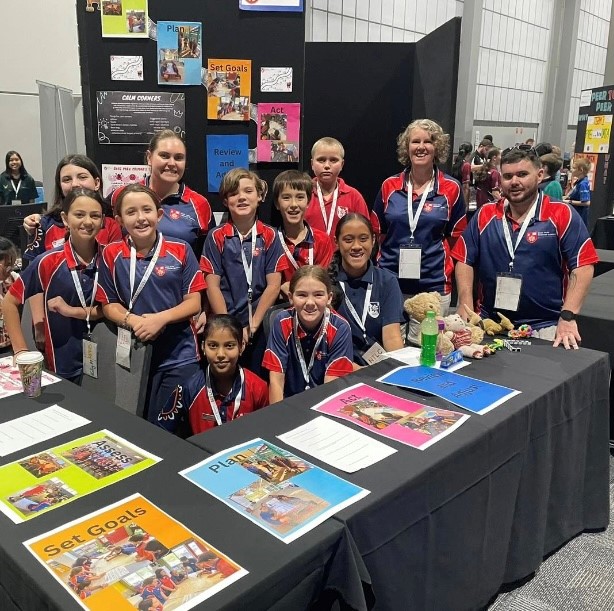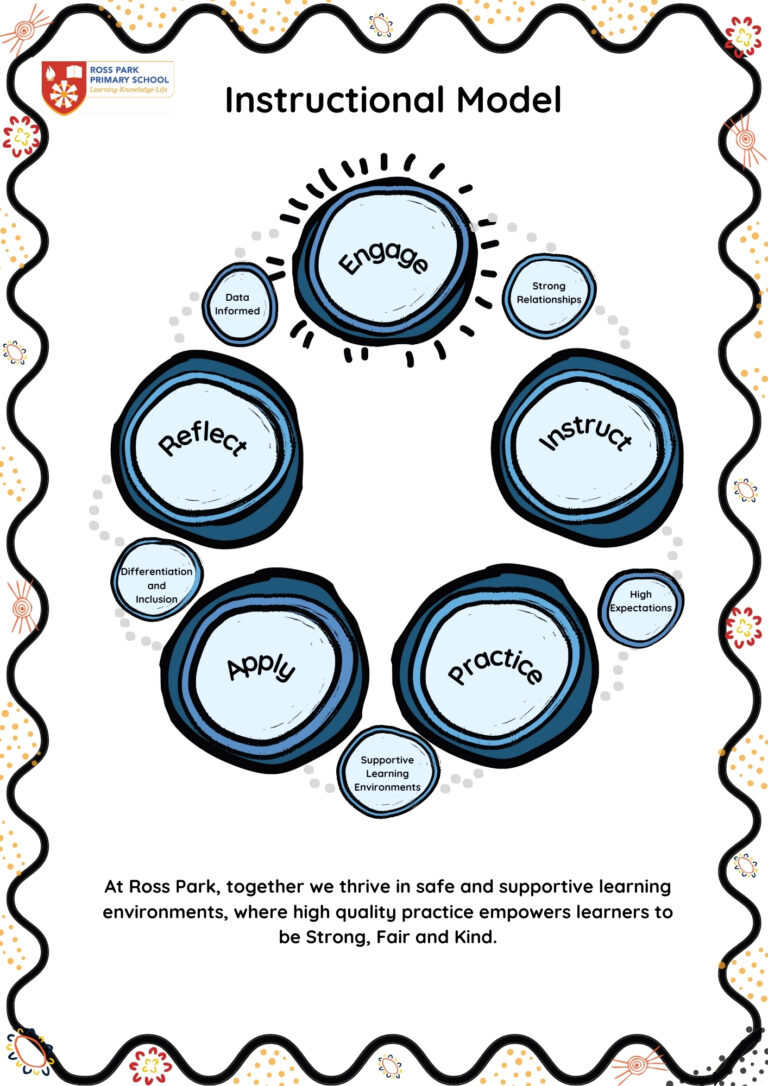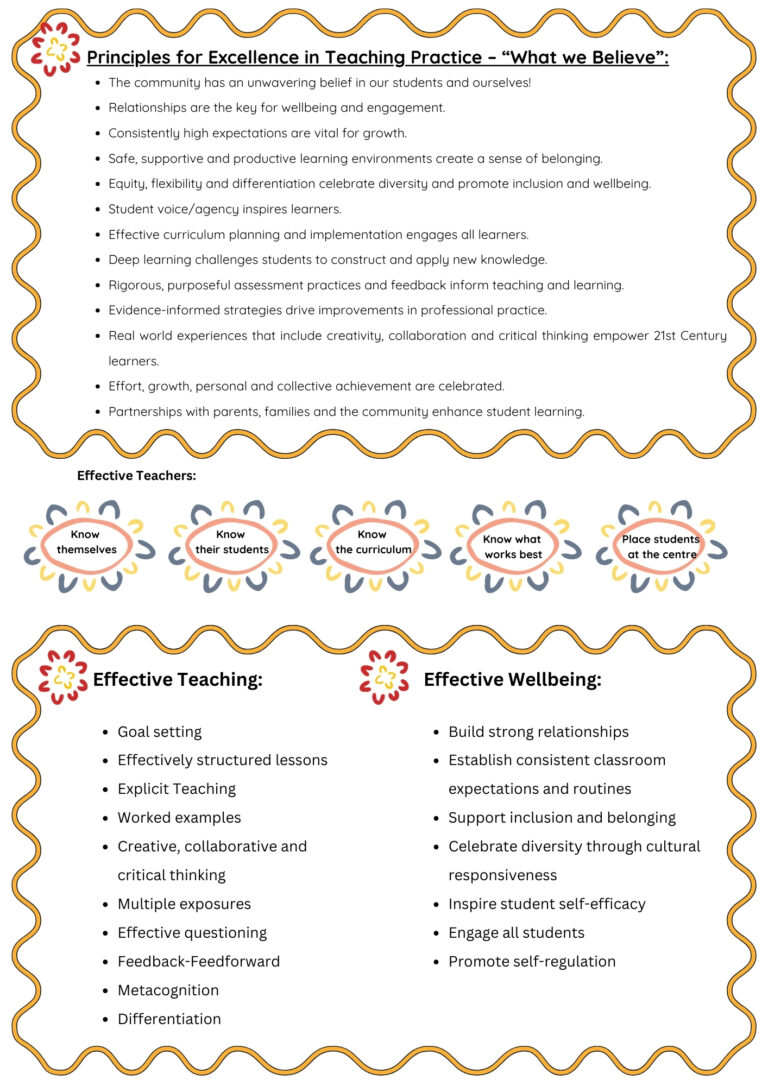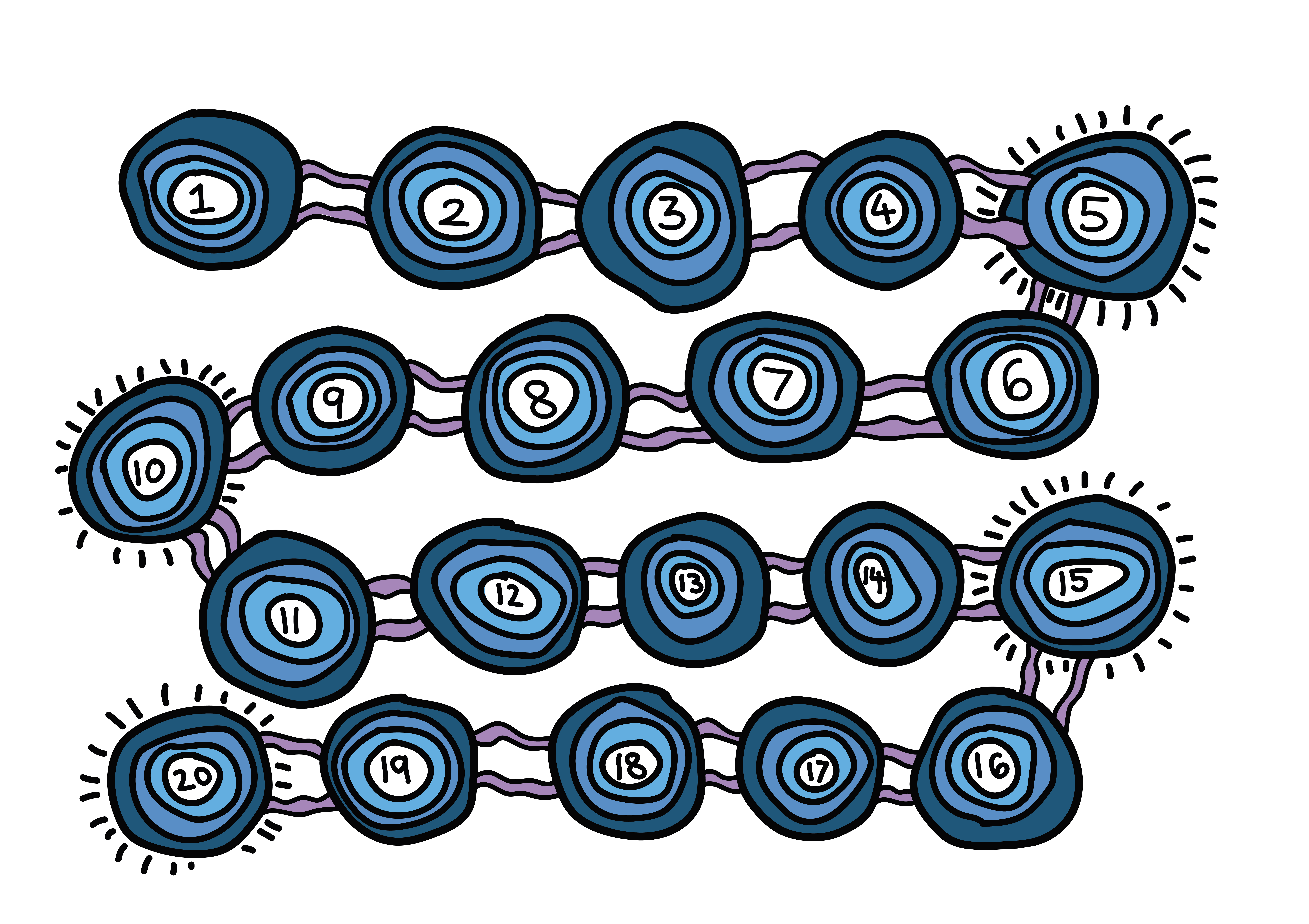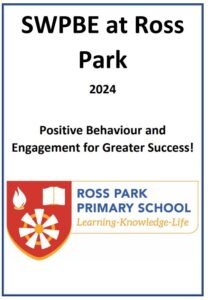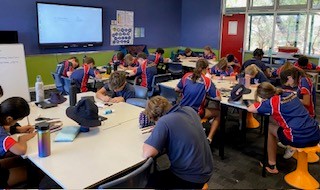
At Ross Park we recognise that highly effective teaching is the key to improving student learning throughout the school. We have established and outlined clear expectations concerning the use of evidence-informed teaching practices in all classrooms. All teachers understand and use effective teaching strategies to ensure that every student is engaged, challenged, and learning successfully. Staff collaborate regularly to ensure the implementation of effective pedagogical practices is consistent across the school. Leaders work alongside teachers to draw on a range of evidence to evaluate and continuously refine pedagogical practices to maximise their impact on student learning.
The Australian Professional Standards for Teachers (2011) outlines the knowledge, practice and engagement required from teachers to ensure they know the students and how they learn (Standard 1) and create and maintain supportive learning environments (Standard 4). While these may look different across teachers, classrooms, and students, the need to create safe, supportive and responsive learning environments that provide all students with a chance to thrive is the key to success.
Ross Park Instructional Model
Whilst no Instructional Model captures the complexity, art, sacredness or science of teaching, these models are the foundation upon which consistent practice can be built across the school. The RPPS Instructional Model translates research into practical strategies and processes, and provides multiple opportunities for educators to reflect on aspects of their practice that could further impact student progress.
Our Waterholes represent the key components of our lesson structure (or series of lessons), and our Billabongs represent essential places to stop to ensure the learning journey is robust and meaningful.
School Wide Positive Behaviour and Engagement – SWPBE
Ross Park Primary School is committed to the implementation of a whole school approach to Positive Behaviour support for engagement and learning. We strive to provide an inclusive, supportive and safe learning environment, by developing an understanding of our values, and encouraging all students to live these values throughout the community.
Our approach aligns academic and behavioural systems to create an emphasis on explicitly teaching, monitoring, and rewarding appropriate behaviour for learning. This creates a positive school culture where all students can achieve their best. It is vital that these behaviours support engagement in learning and are not taught in isolation.
At Ross Park we have established a dedicated team to guide and review the implementation of SWPBE across the school. The team is a representation from across the school. The team accesses internal and external support in order to effectively drive the SWPBE effort.
Click here to open our SWPBE Guide in a new tab.

Learning Through Doing – LTD
Learning Through Doing is an engaging and hands-on approach to teaching mathematics. It includes:
- Whole School Programs
- Yearly Overviews
- Lesson Plans
- Assessment Tasks
- Hands-on Resources
We’re very excited to partner with LTD, to support engaging and meaningful learning in our maths lessons. LTD is an evidence-based program that aligns with our school’s Instructional Model, and introduces concepts through whole-class, small group and individual instruction.
Read Write Inc- RWI
Read Write Inc is an evidence-based program that teaches students phonemic awareness, phonics and grapheme correspondences, vocabulary, reading and spelling through blending and segmenting handwriting and sentence writing with regular assessments and data tracking to ensure students are taught at their point of need.
Read Write Inc has the following attributes:
- Explicit – clear, direct teaching
- Systematic – follows a plan, methodical and routine
- Cumulative – each skill is built upon the previous skill
- Sequential instruction – begins with basic concepts and progresses to more difficult concepts and elements
Read Write Inc is implemented in all classes from Transition to Year 2, and underpins intervention programs in Years 3-6.


Street Science
In 2024, we are very excited to be embarking on the Street Science School Partnership Program. Street Science are experts at making science education seriously FUN and will help us build on our existing STEM culture, providing many more engaging learning opportunities for our students in this space. We recognise that science is not just an academic subject but plays a vital role in the development of each and every student, regardless of their personal or professional ambitions.
Street Science are dedicated to inspiring equity in STEM through this Partnership Program, elevating both students and educators within school communities to remove barriers to quality education and improve attitudes and outcomes.
As part of the Program, students will access live Street Science shows and enjoy hands-on experimentation through Classroom Kits matched to different science units throughout the year. Students and teachers will enjoy participating in a regular streamed science show online, and teachers will have access to high quality curriculum resources and digital content for classroom use.
The activities and resources related to this Partnership have strong curriculum links back to the classroom, will help prepare out students with STEM-skills for their futures, and promise to be a whole lot of fun! Full student participation is strongly encouraged so that they can all engage and be inspired by the opportunities that this Partnership provides our school community.
The Resilience Project
Ross Park learners are engaged in Social and Emotional Learning, integrated into daily programs and also as a distinct lesson. Students all use The Resilience Project Schools’ Program where they explore Gratitude, Empathy and Mindfulness. Teachers’ Book Club text is The Resilience Project, recognising the need for adult wellbeing as well as children’s.
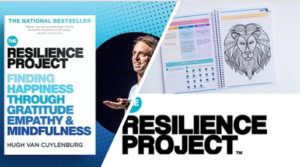
The Children’s University
At Ross Park this opportunity is open to students in Years 2-6. See classroom teachers for more information.
The aim of Children’s University is simple: to help develop free-thinking and inquisitive children who enjoy learning. The program engages children in Year 2-6 to make them lifelong learners and achievers. To do this, curated educational experiences offer a global perspective and reward participants for their hard work. All of the local, experiential activities (or Learning Destinations) have a tangible link to university, which in turn fosters the children’s ambitions to consider participation in higher education. Participating in Children’s University is voluntary, the learning is led by the child in order to create greater motivation and engagement. Members can learn about what they are interested in! Every participating student is recognised and rewarded with a graduation ceremony and certificates, giving them a true sense of pride in their accomplishments – and aspiration for their future endeavours.
Eco Schools
In 2022, Ross Park Primary School joined the Eco-Schools family, being recognised for our efforts with waste and recycling initiatives by being awarded a Bronze Award.
So who are Eco-Schools?
Eco-Schools is a well-established sustainability education framework active in 74 countries worldwide. Developed by the Foundation for Environmental Education (FEE), Eco-Schools is a curriculum-integrated and participatory initiative, offering students a valuable platform to engage in active citizenship within their schools. This program extends its benefits not only to the schools but also to the broader community.
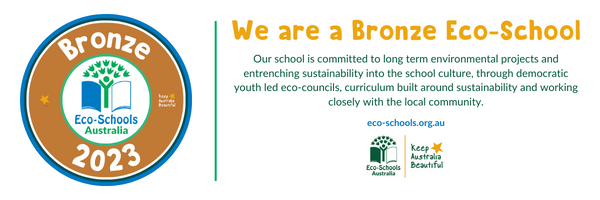
Northern Territory Learning Commission (NTLC)
The Northern Territory Learning Commission (NTLC) is a unique initiative in Australia that fosters collaborationbetween schools, the Department of Education and students. It empowers students as “partners in learning,” representing over half of young Territorians in public schools.
Students in Years 5 and 6 hold a two-year term as learning commissioners, with students in Year 6 becoming ambassadors to those in Year 5, supporting their contribution and ease with new learning. The NTLC at Ross Park contributes directly to strategy development at the school, region and system level, with the aim that it leads directly and authentically to ensure continuous improvement. The NTLC’s success lies in its commitment to student engagement and leadership, making it a model for best practices in the public sector.
